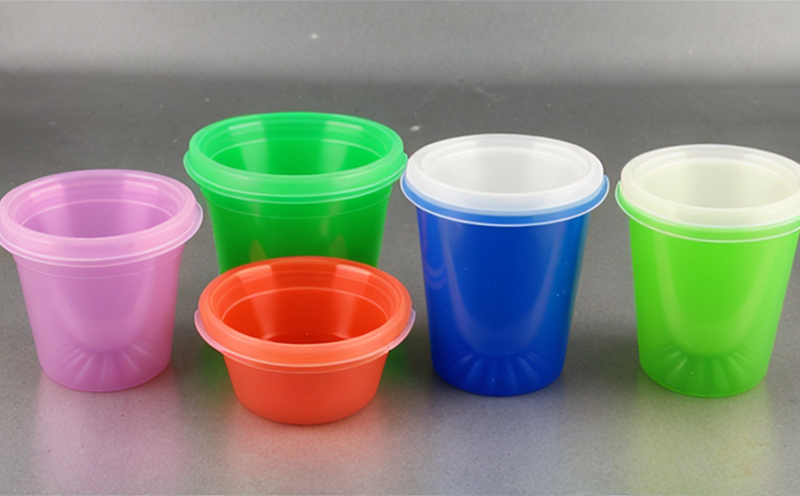UNE EN ISO 527-2 Tensile Testing of Disposable Plastic Sheets
The UNE standard, in conjunction with the International Organization for Standardization (ISO) and European Committee for Standardization (CEN), provides a robust framework for tensile testing of disposable plastic sheets. This method is essential for ensuring product integrity and performance compliance across various sectors that rely on disposable plastics. The primary focus here is to determine the tensile strength, elongation at break, modulus of elasticity, and other mechanical properties critical for quality assurance.
UNE EN ISO 527-2 specifies a precise method for tension testing specimens in accordance with international standards. It defines the procedural steps necessary to ensure accurate results, including specimen preparation, test setup, and data recording. This standard is particularly applicable when evaluating thin films or sheets of disposable plastics that undergo significant mechanical stress during use.
The tensile testing machine used must adhere strictly to these guidelines to ensure reproducibility and accuracy. Specimens are typically cut from the plastic sheet according to predefined dimensions and tolerances, ensuring uniformity across multiple samples. The machine applies controlled force until fracture or specified elongation occurs, recording stress-strain data throughout.
Industry sectors that benefit greatly from this testing include medical device manufacturers, packaging companies, and consumer goods producers who use disposable plastics in their products. Compliance with UNE EN ISO 527-2 ensures adherence to regulatory requirements and enhances brand reputation by demonstrating commitment to quality.
The process involves several critical steps:
- Specimen preparation: Ensuring specimens are cut accurately to the specified dimensions using precise cutting tools.
- Testing setup: Aligning the specimen correctly within the machine jaws and securing it in place.
- Data recording: Capturing stress-strain data throughout the testing process, which helps in analyzing mechanical properties.
The results of this test are crucial for identifying potential weaknesses or areas needing improvement. They can inform decisions about material selection, design modifications, and process optimization aimed at enhancing product durability and safety.
Compliance with UNE EN ISO 527-2 also fosters trust among stakeholders by meeting stringent international standards. This is particularly important in sectors where product reliability and performance are paramount, such as medical devices or food packaging materials.
Benefits
Tensile testing of disposable plastic sheets using UNE EN ISO 527-2 offers numerous advantages that are vital for maintaining high standards in manufacturing and quality assurance:
- Enhanced Quality Control: By adhering to this standard, manufacturers can ensure consistent product performance across batches.
- Informed Decision Making: Detailed insights into material properties guide informed decisions regarding design changes and process improvements.
- Regulatory Compliance: Meeting international standards ensures compliance with legal requirements and industry best practices.
- Increased Customer Trust: Demonstrating adherence to rigorous testing protocols builds confidence among consumers and regulatory bodies alike.
These benefits collectively contribute to creating a more reliable, efficient, and competitive manufacturing environment in sectors dependent on disposable plastics.
Industry Applications
- Medical Device Manufacturing: Ensures the integrity of single-use medical supplies like syringes and catheters.
- Packaging Industries: Validates the strength and durability of packaging materials used for food and pharmaceutical products.
- Consumer Goods Production: Guarantees the robustness of disposable items such as razors, gloves, and cleaning supplies.
Tensile testing plays a pivotal role in these industries by providing critical data that supports continuous improvement efforts aimed at enhancing product quality and safety.
Competitive Advantage and Market Impact
Adhering to UNE EN ISO 527-2 can significantly enhance a company's competitive position by:
- Meeting Customer Expectations: Demonstrating commitment to quality through stringent testing protocols.
- Increasing Market Share: By delivering reliable products that meet or exceed industry standards, businesses can attract more customers.
- Paving the Way for Innovation: Insights gained from these tests enable companies to innovate and develop better-performing products.
The global market for disposable plastics continues to grow, driven by increasing demand in emerging economies. Staying ahead of this trend requires rigorous quality assurance processes that align with international standards like UNE EN ISO 527-2.





